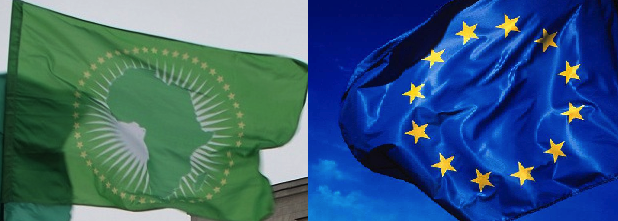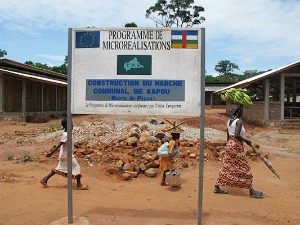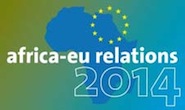+++ Guest post by William Hynes+++ Official Development Assistance (ODA) has for 45 years been the global standard for measuring donor efforts in support of development co-operation objectives. There have recently been calls for the concept to be modernised. Yet the reform proposals on the table constitute modest adjustments rather a radical overhaul. The scope for reform is also bounded by some high level decisions. The 2012 DAC High Level Meeting agreed to “maintain the definition of ODA”, while investigating how to modernise and clarify it, and discussions on the post 2015 development agenda – ...
While the debate on Scottish independence is heating up prior to the referendum in September 2014, it is important to consider what implications an independent Scotland would have for UK and European development aid. While the UK aid would undoubtedly be affected, this new donor country would need to make an effort to minimize the effect on further aid fragmentation. Scottish independence would lead to more fragmentation of European development cooperation and a major reduction in Department for International Development (DFID) programmes as a result of an estimated GBP 1 billion cut in its budget, ...
This week the OECD Development Co-operation Directorate (DAC) Network on Governance hosted a workshop on “Political Economy Analyses (PEA): Lessons Learned and New Directions”. Discussions looked at past progress in incorporating political analysis into donor thinking and programming as well as ways to mainstream this kind of analysis. While that raises a number of challenges it seems to me that it may be helpful to frame thinking and acting politically around four main points: acknowledgement, awareness, adaptation and alteration. Acknowledgement Although the workshop’s group of political-economistas needed no convincing of the political nature of development ...
December 19, 2013
Posted: 12:06 PM CEST
by ecdpm
in Africa Change Dynamics, Conflict, security and resilience, Cross-cutting issues, ECDPM, Economic Governance, Food security, Political economy analysis, Strengthening European External Action, Trade and Regional integration
This year a lot had happened in international development and co-operation. The EU External Action Service review was launched, the African Union celebrated its’ 50th anniversary, and dialogue around the post-2015 agenda began to take centre stage. We look back over the last year of ECDPM blogs and share the top ten of 2013. The most viewed blogs have covered topics from political economy analysis to regional integration in Southern Africa. Top ten blogs of 2013: EEAS review and development: yet another EU coordination challenge? What and who drives regional integration in Southern Africa? Le ...
Guest blog by Christian Kingombe The citizens of the African continent have been introduced to one grand vision of development after the other – from OAU to AU since the well-known debate between Kwame Nkrumah and Nnamdi Azikiwe. However, there is a tendency by some of the African Development Bank’s regional member countries to retreat from fulfilling regional treaty commitments, which, in some cases, would entail losing a degree of sovereignty. What is the biggest stumbling block to achieving the African Integration Vision? But after more than 50 years of solemn regional integration declarations these ...
Image above: The four operational departments of the SDC Transcript Which goals for global development post-2015 are important for Switzerland? Switzerland is likely to promote as stand-alone goals: agenda for equality, health, water as well as peace and security. We also try to ensure that issues like disaster risk reduction, sustainable consumption and production patterns are not lost on the way to a new set of goals. What do you consider to be the challenges for negotiating a global agreement? Working under time pressure, being participatory as much as possible, in an agenda that is ...
We want to know what you think are the important topics on the lead up to the EU-Africa Summit 2014 in April. In early September we will be setting up an external webpage, which will provide a space for debates and discussions around all the key issues on the run up to the Summit. We want as many voices as possible and that’s where you come in. Blog guidelines The blogs need to be no more than 800 words. They can cover any topic you like as long as it is relevant to Africa Europe ...
At the end of June, the European Commission’s (EC) Capacity4Dev website posted a message saying that following a stock-taking of the lessons learned from their work on the development of a methodology for Political Economy Analysis and the testing of it over the past year in a number of countries, that concerns had arisen that understanding the political and economic reality in which they operate belongs among the core tasks of desk officers and staff in delegation and the EEAS. Therefore, the method should make more use of the staff of the EC’s Development Directorate and the European ...
Aiichiro Yamamoto, the Japan International Cooperation Agency’s (JICA) EU representative, talks about how the North-South aid paradigm (rich countries giving aid to poor countries) is transforming it to a partnership model where emerging countries are also becoming donors. These three parties can work together – through triangular cooperation - to solve the common global issues such as climate change and poverty he says. In these two videos, he also outlines the strengths and weaknesses of the European Union’s international development cooperation, and how Japan is keen to work with the EU institutions and Member States ...
During the last decade, the EU has been supporting decentralisation reforms across the developing world, mobilising a growing amount of funds and making use of different ‘entry points’ (e.g. support to national policies, bottom-up initiatives, etc.) and instruments (e.g. budget support or projects). There has also been a steady intensification of relations with local authorities and their associations. In 2012, a major thematic evaluation was concluded on the relevance and impact of EU support to decentralisation and local governance. While the evaluation recognised the added value of many EU-supported programmes, it clearly stressed the need ...





















